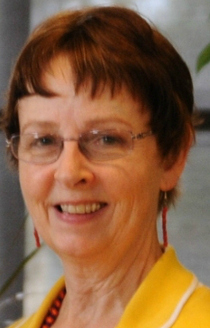Campus News
Video highlights cultural differences in collaboration
A video by Distinguished Professor of Psychology Barbara Rogoff is featured in the “2019 STEM for All Video Showcase,” a competition hosted by the National Science Foundation (NSF).

Update:Profesor Barbara Rogoff’s “Collaboration as an Ensemble” video won awards in all four categories in NSF’s 2019 video contest: most-discussed, public choice, presenter choice, and facilitator choice.
A video by Distinguished Professor of Psychology Barbara Rogoff is featured in the “2019 STEM for All Video Showcase,” a competition hosted by the National Science Foundation (NSF).
Rogoff and co-presenters Lucía Alcalá and Omar Ruvalcaba, both of whom earned doctorates in psychology from UC Santa Cruz, created a 3-minute research video entitled “Collaboration as an Ensemble.” They submitted it as part of NSF’s annual competition showcasing innovative projects that seek to improve learning and teaching in science, technology, engineering, and mathematics—the so-called STEM fields.
The video, set in California, highlights the sophisticated, fluid collaboration of U.S. Mexican-heritage children, whom the researchers found collaborate twice as much as their middle-class European American classmates in tasks like computer programming and route planning.
“The Mexican-heritage children’s collaboration was so well coordinated that they often seemed like one organism with four arms,” said Rogoff. Changing classroom practices to make use of these children’s skillful ways of working together could help to broaden children’s participation in science, according to the researchers.
Rogoff’s video is available for voting through May 20 as part of NSF’s annual competition; viewers are invited to vote for their favorite video and join an online discussion about the videos.
Videos from Rogoff’s research team have taken top public awards in the previous three years; the videos remain available for viewing online on the NSF STEM for All Video Showcase site.
Now in its fifth year, the NSF showcase features over 240 projects this year. The videos highlight initiatives for students of all ages, kindergarten through graduate school, as well as for adult learners.